At the Uyghur Youth Leadership Training held in Ankara, young participants received instruction on preserving Uyghur culture and language, developing leadership skills, and creating strategies for the diaspora.
Organized by the Uyghur Academy, the “Uyghur Youth Leadership Training on the Preservation and Development of Uyghur Language and Culture” took place on September 18–20, 2025, at the Izz Hotel in Ankara’s Kızılay district. Uyghur youth from various countries attended the program. The three-day event aimed to enhance the leadership capacity of Uyghur youth in the diaspora, strengthen their identity awareness, and formulate concrete strategies for preserving the Uyghur language and culture. 
The training program began on September 18 with the participation of youth in the international conference “Preserving Uyghur Identity Amid the Uyghur Genocide,” held at the Ankara Plaza Hotel. In the evening, a networking session was held at the Izz Hotel, where participants met each other and shared their expectations.
Core Training on Leadership, Culture, and Language Preservation
Starting from the second day, dedicated training sessions were organized for youth. The opening speech was delivered by Dr. Rishat Abbas (President of the Uyghur Academy, Senior Advisor to the World Uyghur Congress, and scientist and clinical research leader in the U.S.), who underlined that cultivating a new generation of leaders is essential for safeguarding Uyghur identity and advancing the cause.
The first presentation, moderated by Assoc. Prof. Nimetcan Memet Orhun, was delivered by Dr. Mamatimin Abbas, who addressed the question “Who Are the Uyghurs?” He explored the historical and cultural background in detail and engaged participants in an interactive discussion.

Rushan Abbas, President of Campaign for Uyghurs, gave a presentation titled “Leadership Capacity in Preserving Uyghur Culture and Advancing the Uyghur Language.” She shared advocacy methods, introduced key policy priorities, and led a brainstorming session with the youth.

Kalbinu Siddik gave testimony about internment camps, describing the harsh living conditions, daily discipline and surveillance, and the psychological and physical hardships endured by detainees.

Prof. Dr. Erkin Emet and Bahtiyar Ömer discussed “The Role of Media in Preserving Uyghur Identity, Culture, and Language,” stressing the media’s importance in raising awareness both in the diaspora and internationally.

The final speaker of the morning session, Elfidar Iltebir, in her talk “Mobilizing Uyghur Communities Around Identity Preservation and Advocacy,” highlighted the significance of grassroots initiatives in the diaspora and explained how different social segments could be engaged in the process.

In the afternoon, Abdulhakim Idris spoke on “Faith and Identity: The Role of Islam in Preserving Uyghur Culture,” stressing how Uyghur identity has historically developed in close connection with religious values

Rahima Mahmut gave a presentation on “The Role of Music and Dance in Preserving Uyghur Culture,” underlining the importance of Uyghur performing arts in sustaining identity, supported by live performances and discussion.

Later, Dr. Memet Emin and Dr. Abduşükür Abdurreşit co-led the session “Developing Leadership Among Uyghur Youth: Core Skills and Strategies,” providing participants with both theoretical knowledge and practical leadership tools through workshops. 
The last speaker of the day, Abdulhamit Karahan, in his talk “The Importance of Preserving Uyghur Language and Culture: Tools for Protection,” outlined methods and resources that can ensure the sustainability of language and cultural practices.

In the evening, a special session on “The Importance of Art, Poetry, and Language Education in Preserving Uyghur Identity” was coordinated by Dr. Gulzade Tangritaghli, Madinay Bawudun, and Dr. Rena Karahan. Madinay Bawudun gave a short presentation on the role of poetry in Uyghur culture, sharing some of her own works—some of which have been turned into songs—and discussing how art can help preserve culture and bring people together. 
Additionally, Muhtar Janbaz, Rahima Mahmut, and Mominjan Rahman contributed to the working group. The role of art, literature, and language education in maintaining identity consciousness was discussed in detail.
Developing Strategy and Vision for the Future
The third day of the program was youth-led under the moderation of Dr. Barat Achinuq. In the morning session, youth representatives selected the previous day gave short presentations on topics including identity, advocacy, language preservation, religion, media, and leadership. Participants then worked in small groups to draft local action plans, developing projects ranging from establishing language clubs to organizing cultural events, producing digital content, and creating community advocacy tools.

In the afternoon, groups presented their action plans and received feedback from instructors. They also discussed the idea of establishing a global Uyghur youth network, addressing communication platforms, annual activities, and long-term goals.
Following this, participants joined skill-building workshops. In these sessions: Dr. Memet Emin and Bahtiyar Ömer led training on media and podcast production; Rahima Mahmut, Dr. Gulzade Tangritaghli, and Dr. Rena Karahan focused on organizing cultural events; Rushan Abbas and Elfidar Iltebir trained participants in social media advocacy; and Prof. Alimjan Inayet and Serdar Zağoğlu provided guidance on organizing events related to the Uyghur language.

At the end of the day, a general session was held where the youth presented summaries of their group work. The closing speech was delivered by Ekbercan Bavudun, a Uyghur community leader from Kyrgyzstan, who positively evaluated the program and the students’ active participation, expressing hope for the future. Dr. Rishat Abbas also addressed the participants and presented their certificates. The evaluation of the program was conducted by Dr. Barat Achinuq and Dr. Mamatimin Abbas. The evening concluded with a cultural program coordinated by Dr. Gulzade Tangritaghli and Dr. Rena Karahan, featuring performances by the youth.
Organizers emphasized that the training was not only a leadership program but also a historic step toward ensuring the survival of Uyghur language and culture in the diaspora. They underlined that the ability of youth to build global networks and develop a long-term roadmap is critical for the future of Uyghur identity and language.
Abdulhamit Karahan, Deputy Chairman of the Uyghur Academy and President of the Uyghur Academy Foundation, shared his reflections with Uyghur Haber: “This training program was designed as a multifaceted gathering for the young generation who will shoulder the future of the Uyghur cause. Thanks to the contributions of academics, community leaders, and activists, the youth not only gained knowledge but also had the opportunity to actively participate in the sessions and voice their perspectives. In this way, the program created a productive environment that revealed the intellectual engagement and leadership potential of the youth.”

Karahan further stated: “From the central role of art and literature in preserving Uyghur identity to testimonies about internment camps and discussions on international efforts, a wide range of topics were addressed. This allowed the youth to grasp the Uyghur cause in both cultural and political dimensions more holistically. The program helped strengthen the consciousness of responsibility among diaspora youth, deepened their sense of belonging, and increased their hopes for the future.”
Source: Uyghur Haber
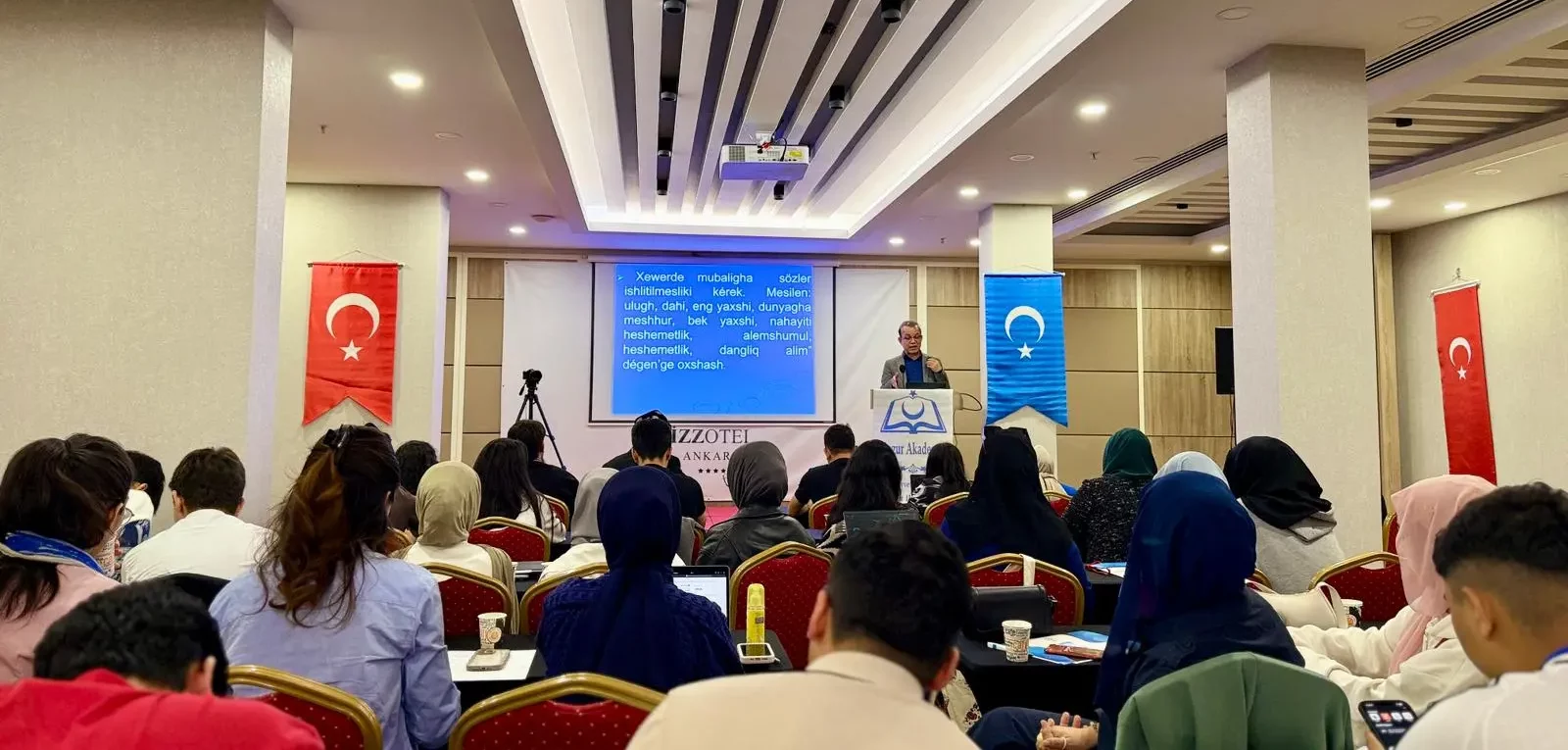
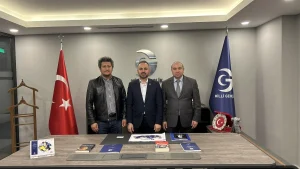
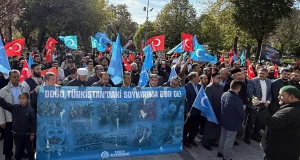
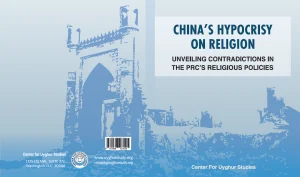
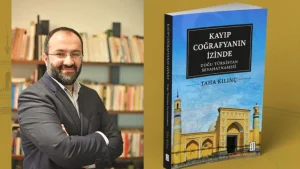

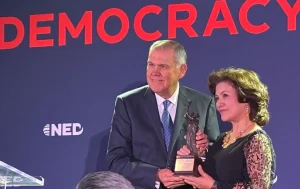
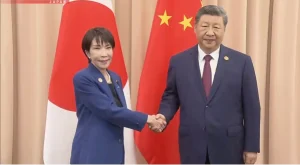
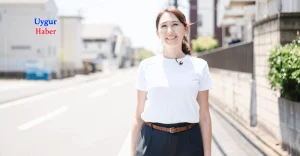
Be First to Comment